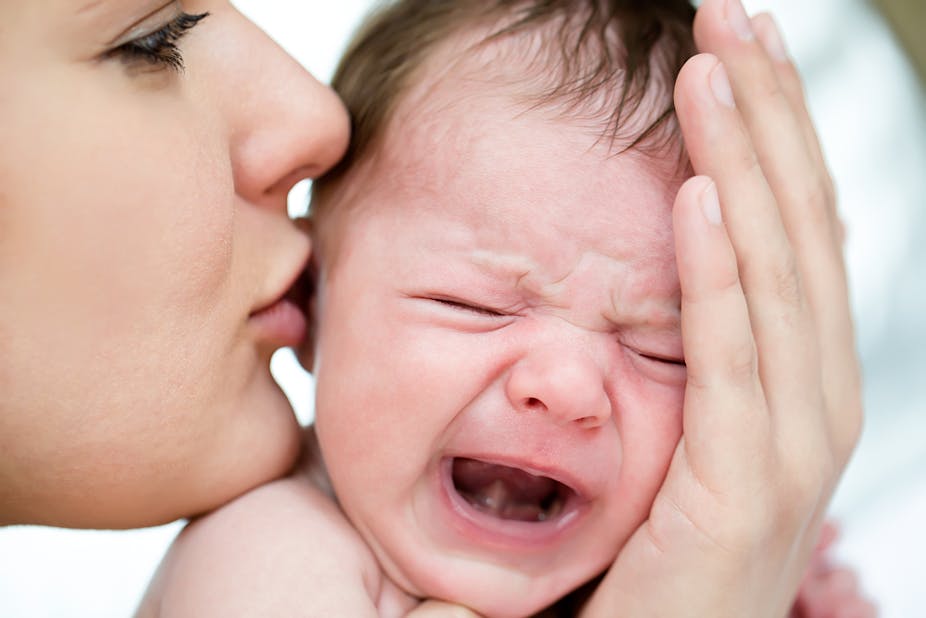There is little evidence to show that different parenting styles affect a child’s development. And yet these reasons seem central to David Cameron’s proposal that parenting classes are necessary in Britain.
Several things in the prime minister’s recent speech on improving the life chances of the UK’s children are undoubtedly welcome: 30 hours free childcare per week, providing better educational support for disadvantaged teenagers, and destigmatising mental illness.
But the take-home message in his Life Chances Strategy is that experiences in the first two years of life have the power to alter children’s destinies “for good or ill in this window of opportunity”. Cameron highlighted the need “to think big, be imaginative … opening ourselves up to the new thinking”. But extending the existing parenting classes that did not prove popular hardly seems a big, new solution.
Other improvements Cameron wants to instigate in order to enhance children’s chances – a good education, inspiring teachers, supportive mentors, exciting opportunities, access to good mental health services – imply that these things, and not just the first two years of life, are critical to children’s development.
I’m not saying that parenting isn’t important for children’s development or that we shouldn’t try to help people be the best possible parents. But this scaremongering about early parenting having the potential to damage your baby’s brain development, as well as his or her lifelong chances of success, really isn’t helpful.
No wonder hardly anyone signs up for parenting classes. It’s like admitting you’ve caused irreparable damage to your child.
Missed opportunity
I’d forget about new parenting classes altogether and use existing structures that are working well. The majority of first-time mothers attend antenatal classes and over a million families regularly use children’s centres.
The heavy focus in antenatal classes on the birth and physically caring for the baby is a missed opportunity. So make it policy to cover material on babies’ psychological development through these routes: this has the potential to improve parenting on a grand scale.
And if you want to reach all parents, you could do some big, new thinking about how information is delivered. In this social media age, face-to-face classes seem very old fashioned. Media technologies are increasingly being used in health and psychological services to deliver information and intervene in people’s lives.
My own research uses a smartphone app to improve parenting. Every day, the app provides parents with interesting facts about their babies’ development. Parents also share photographs and video of their babies with the research team so that we can provide support and feedback. Parents get this information and support without having to sign up for a class. It’s available to them all day, every day, wherever they are.

Of course, some parents will need more intensive support. But if we are innovative in our delivery of information to all parents, face-to-face services can be targeted at parents whose mental health or social-economic circumstances make them more vulnerable. This is the approach the NSPCC charity is already taking in a new programme that my research team helped develop, providing support from pregnancy to the baby’s first birthday.
Understand your baby
Our model is to present parents with evidence on babies’ psychological development in an accessible and engaging way. Parents are then encouraged to reflect on what they’ve observed their own babies doing. They can discuss how they can use this new knowledge when interacting and playing with their babies.
If you don’t know that a newborn baby prefers her mother’s voice over another woman’s voice, you may not talk to your baby. If you don’t know that brain immaturity means that children are simply unable to begin to control their behaviour until the preschool years, you’ll be more likely to discipline your child for continuing to do what you’ve told him not to. A more effective strategy would be to distract him or get him interested in something else.
When parents learn amazing facts about babies’ psychological development, it transforms how they see their babies. So giving parents knowledge about what their babies can and can’t do will make them more attuned parents without parenting even being mentioned. This is how to achieve Cameron’s goal of making it “aspirational” to attend parenting classes.

